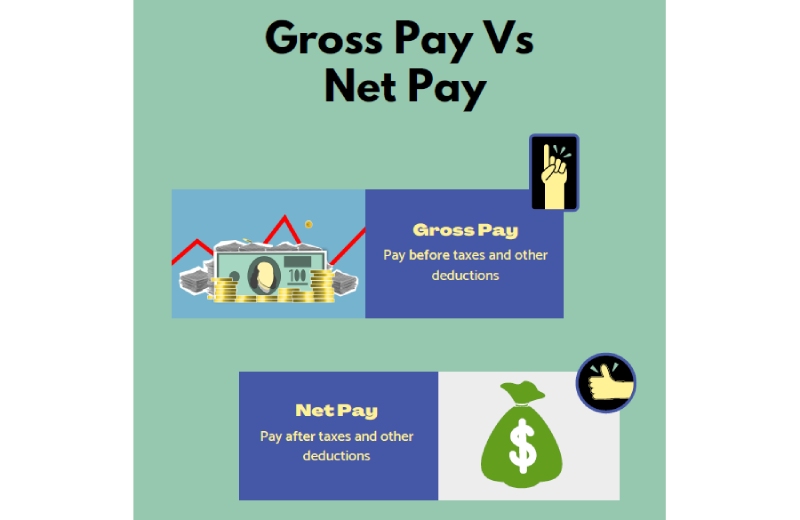
It’s tax season again. It’s simple to become confused with all the forms and applications you have to fill out.
Whether this is your first time filing or you’ve been doing it for years, you should record your total income for the tax year.
This article explains net pay, including what it is, how to calculate it, and how it differs from gross pay.
The money that employees receive after payroll deductions are deducted from their gross pay is known as their net pay. Taxes, benefits, wage garnishments, and other deductions are among them.
Net pay is, to put it simply, the amount of money you keep after taxes.
For example, if a person receives $1,200 a week after deductions of $160, their weekly net pay will be $1,040.
Before payroll deductions, an employee’s gross pay is their total earned wages.
Net income, sometimes referred to as net earnings, is a company’s total revenue less its operating expenses. This covers the price of the goods as well as depreciation, taxes, interest, running costs, and selling, general, and administrative expenses.
Profitability is determined by net income.
What you take home is your net pay. It’s not a guarantee that you will receive the same net pay as someone who earns the same as you. Certain taxes, benefits, wage garnishments, and other deductions have an impact on net pay.
A person’s net pay may differ from yours depending on a variety of factors, such as their filing status, tax credits, children and dependents, and marital status.
Regarding your employees’ net pay, employers have a few things to think about. For example, employer FICA taxes, benefits, and contributions to retirement plans are subtracted from an employee’s net pay before they are received.
Furthermore, net pay is the amount an employee takes home from their job rather than the amount it costs to employ them.
Monitoring your employees’ gross and net pay is essential for managing payroll taxes. Should there be any discrepancies between the two, you might wish to double-check the data. Penalties may follow if there are any problems.
Swiss International University (SIU) is on track to be one of the world's most respected… Read More
In a session that left students buzzing with fresh ideas and practical insights, Invertis University… Read More
At the 21st Shanghai International Automobile Industry Exhibition, which is surging with the wave of… Read More
Liverpool, UK—House of Spells and Comic Con Liverpool are once again collaborating to bring the… Read More
Introduction In India's booming EdTech space, there's one name that's making waves among Telugu students… Read More
In litigation, often, the difference between winning and losing comes down to strategy. Although facts… Read More